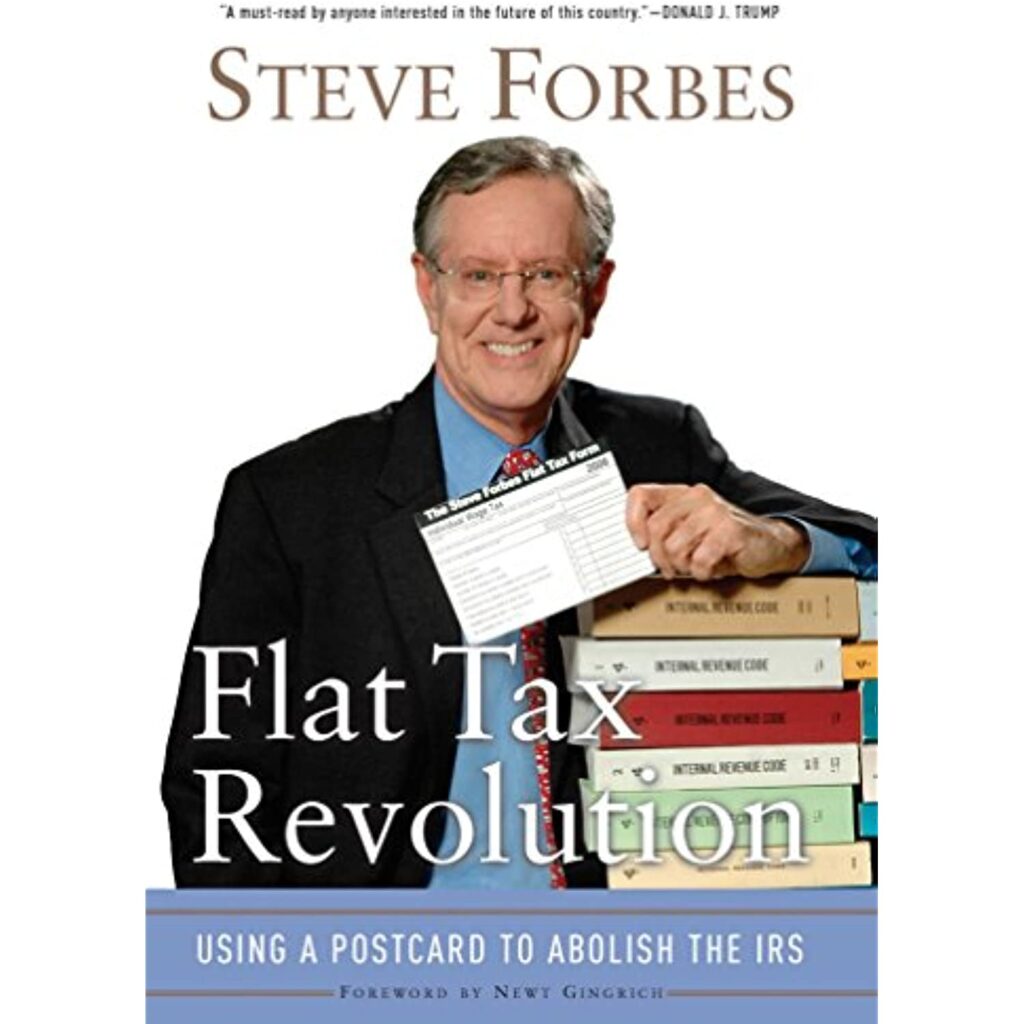(This item originally appeared at Forbes.com on March 29, 2023.)
Recently, I argued that the correct tax rate for interest income, dividends, and capital gains, at the individual level, was zero. This makes sense from a theoretical perspective (capital is taxed via the corporate income tax), and also, produces the best real-world results.
This will drive the socialist “taxing all income the same” people nuts, but actually, I agree with them at a basic level. We should “tax all income the same.” First, we have to define “income.” This is basically the profit of business — either selling goods or services, or selling labor (employment). It is commerce, or economic activity. It is not the trading of assets, or “capital gains.”
When you “tax all income the same,” you end up with a Flat Tax, as people like Steve Forbes have recommended for years. This Flat Tax should be broad: There should be no exemptions, where the income of people who make charitable donations, or install solar panels, is treated differently from those who don’t. It should also have a low rate, below 20%. The same principles apply to corporations or other business, at the same low rate as individuals pay. It would look something like Herman Cain’s “9-9-9 Plan,” where both individual and corporate income is taxed at 9%.

There would only be one tax rate for all income. We would get rid of “graduated” income tax rates, where people with high incomes pay a different rate than people with low incomes. That is not “taxing all income the same” is it? This is the Principle of Uniformity in Taxation, which is actually already in the Constitution, known as the Uniformity Clause.
The Flat Tax proposals of the 1990s were designed to be politically feasible, in the environment of that time. They would work alongside the existing Payroll Tax. But, the Flat Tax proposals didn’t “treat all income the same.” Below a certain threshold, a basic deduction, income was untaxed. The payroll tax worked the other way: Beyond a certain threshold, income was untaxed. Ideally, we could eliminate this. If we also eliminate deductions, we end up with something that looks like a Payroll Tax, but on all employment income with no upper limit. Maybe the rate would be 15%. Also, you should include other employment benefits like healthcare, pension contributions, or employee stock options. But, these would all be paid by the corporation, just like the payroll tax today. The individual would have no other tax liability. It would become an “indirect tax,” which is good for many reasons. The government only has to tax a few corporations, not a zillion individuals. This is much easier. Also, those zillion individuals are never harassed by the government, which is much more pleasant. (Self-employed people would fall under the “corporate tax,” which is perhaps better named a “business tax.”) The Individual Income Tax, as we know it, would disappear. All employment income would be treated the same, taxed at 15% much like today’s Payroll Tax, and then people would be free and clear to go about their lives.
This leaves income from capital, or the corporate income tax. It should look much like the “individual payroll tax,” with no deductions. (This is known as a “VAT base.”) The tax rate should be the same, maybe 15%, because we want to tax income from Employment and Capital at the same rate. Corporate profit is taxed at the corporate level, and then untaxed when distributed as dividends or interest. Capital gains are tax-free.
Way back in 1845, as Britain instituted its first peacetime income tax, the British writer J. R. McCullough (in Taxation and the Funding System) asserted:
The moment you abandon the cardinal principle of exacting from all individuals the same proportion of their income or of their profits you are at a sea without a rudder or compass and there is no amount of injustice and folly you may not commit.
Britain stuck with these principles for 68 years, with a uniform single-rate system, and became the wealthiest country in the world.
“Taxing all income the same” is the right idea. Without it, we are lost at sea where every possible stupidity can be justified by “fairness.” This is the principle of Uniformity, and it should be the basis for our tax system of the future.

